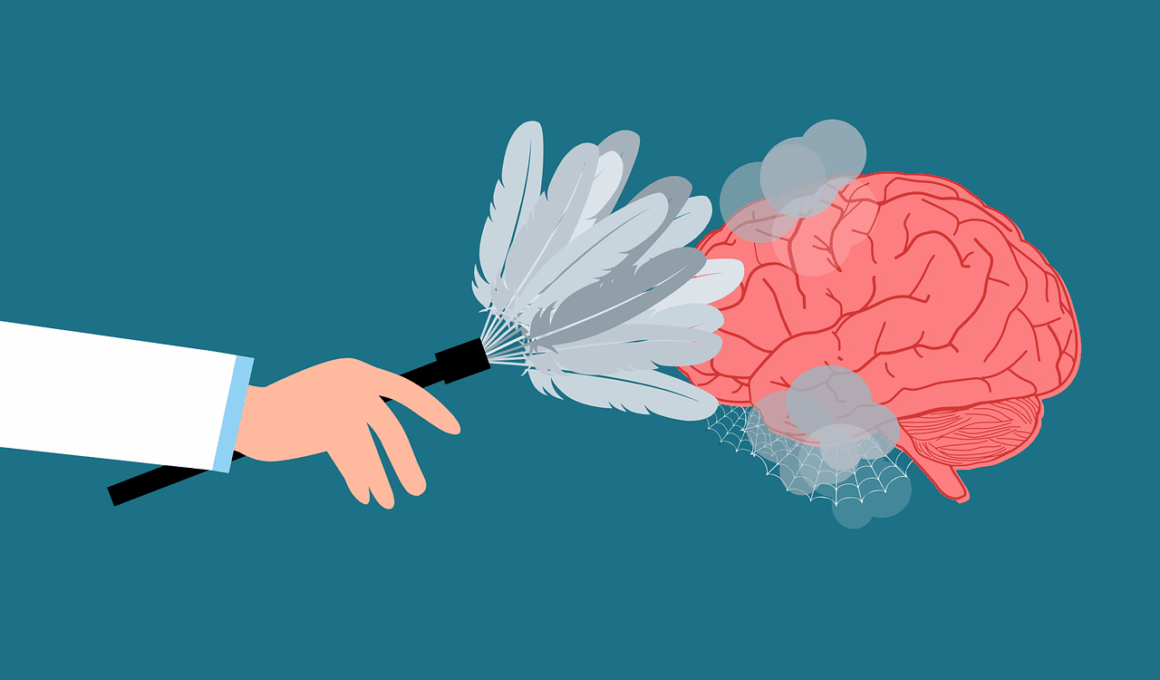Cardio Exercises for Enhancing Mental Clarity and Emotional Stability
Cardio exercises, widely recognized for their physical benefits, also play a pivotal role in enhancing mental clarity and emotional stability. Engaging in regular cardiovascular workouts can significantly influence your psychological well-being. Through the release of endorphins, which are sometimes referred to as “feel-good” hormones, cardio exercises can reduce stress and elevate mood. However, tailored fitness plans are crucial for those with mental disorders, as they take into account individual needs. Such personalized programs not only address fitness levels but also incorporate preferences, making the routine more enjoyable. Following a specific regimen can lead to a sense of accomplishment, which positively impacts self-esteem. Techniques like brisk walking, cycling, or swimming improve cardiovascular health and stimulate brain functions, leading to improved focus and cognitive performance. Incorporating diverse cardio activities can also keep the exercises engaging and reduce the chance of monotony. Furthermore, consistency in performing these workouts can develop habits that promote long-term physical and mental well-being. To kickstart your fitness journey, consider identifying the cardio activities that resonate with you most, and gradually build upon them for sustainable results.
Quality sleep is vital for mental health, and engaging in cardio exercises can contribute to improved sleep quality. This particular fact is important for those experiencing mental disorders, as restful sleep helps regulate mood and cognitive functions more effectively. When you incorporate cardio routines into your daily life, physical fatigue often leads to better sleep patterns. Activities like jogging, dancing, or jumping rope not only improve heart health but also exhaust the muscles in a healthy manner. In doing so, they promote relaxation and reduce insomnia episodes, which can often plague individuals with mental health concerns. Additionally, establishing a steady routine of engaging in cardio can help set consistent sleep schedules, helping regulate cortisol levels and reducing overall anxiety. As your body becomes accustomed to a specific workout routine, the accompanying rhythms foster a sense of security and predictability. Creating a ritual around bedtime involving light stretching may further enhance these effects. To maximize the benefits, opt for morning or early afternoon cardio sessions, which naturally facilitate energy expenditure throughout the day, allowing the body to transition smoothly into restful nighttime sleep.
Combating Anxiety through Cardio Activities
Many individuals grappling with anxiety find solace in cardio-based workouts. Such exercises promote the release of neurotransmitters, like serotonin and dopamine, both of which help regulate mood and create feelings of happiness. Engaging in activities such as running, cycling, or participating in group sports can create a dual impact, combining physical exertion with social interaction. This supportive environment acts as a buffer against anxiety, allowing participants to share experiences and foster connections. The rhythmic, repetitive nature of cardio also facilitates mindfulness and presence, reducing racing thoughts. This process, in turn, helps individuals focus on the present moment instead of getting lost in anxieties about the future. Finding exercise buddies or joining fitness classes can be crucial, especially for those who struggle with motivation. Familiarizing oneself with a variety of cardio formats (i.e., HIIT or steady-state sessions) ensures ongoing engagement. To combat anxiety effectively, start slowly and progressively increase workout intensity, giving your body time to adapt. Balance cardio methods with rest days to allow recovery, as well-rested individuals are less likely to suffer from heightened anxiety levels.
Incorporating varied forms of cardio into fitness plans can enhance enjoyment and ensure compliance. Boredom can be a major detractor from sticking with a fitness routine, particularly for those dealing with mental disorders. Therefore, exploring various activities like dancing, kickboxing, or swimming can provide excitement and challenge the body in new ways. By mixing and matching different cardio exercises, individuals can discover hidden interests they may not have considered otherwise. Emphasizing personal preferences in exercise selection creates a sense of agency and control. Seek out local groups or classes as well, as the shared experience can lead to camaraderie and positive reinforcement. The key to maintaining a successful fitness regimen is ensuring it aligns with personal interests. Additionally, tracking progress can foster a sense of achievement and encourage ongoing effort. Wearing fitness trackers or utilizing mobile apps can offer insights into performance and motivate regular engagement. Make a commitment to explore new cardio options regularly, allowing motivations to flourish and keeping fitness journeys enjoyable. With the right mentality combined with variety, cardio exercises can consistently enhance both physical fitness and mental clarity.
The Role of Nutrition in Cardio and Mental Health
Nutrition plays an indispensable role in both physical performance and mental stability. To maximize the benefits of cardio exercises, individuals should consume a balanced diet rich in vitamins, minerals, fiber, and healthy fats. Nutrition can significantly affect energy levels during workouts and recovery afterward, which directly impacts the effectiveness of exercise routines. Foods high in antioxidants, such as berries and dark leafy greens, help reduce inflammation, a factor that increasingly correlates with various mental health issues. Additionally, incorporating omega-3 fatty acids from fish or walnuts has been shown to assist brain function and emotional regulation. Avoiding highly processed foods and excessive sugar is wise, as they can lead to energy crashes and mood swings. Staying hydrated is also essential, as even slight dehydration can hinder cognitive performance. Create structured meal planning that aligns with workout schedules for optimal energy management. This may include nourishing snacks before or after cardio sessions, promoting endurance and recovery. Through appropriate nutrition, individuals can significantly enhance their potential to succeed in both fitness goals and mental health strategies, fostering resilience and strength.
The environment in which cardio exercises are performed significantly affects motivation and mental health benefits. Creating a positive, encouraging atmosphere can enhance workout efficiency and enjoyment. This can range from selecting an upbeat playlist to workout sessions in nature, which often enhances feelings of calm and connection. Outdoor workouts, such as hiking or cycling in a park, not only provide physical benefits but also offer the aesthetic advantages that nature provides, contributing to an overall sense of well-being. Furthermore, building a support network of friends or exercising with a buddy can amplify enjoyment and motivation. This social component further contributes to emotional stability, mitigating feelings of isolation that may be common with mental health disorders. Group classes often bring the added benefit of community, making exercise feel less daunting and more enjoyable. Partnering with others can provide accountability and encouragement, keeping you committed to your fitness journey. The emotional rewards of shared experiences can be profound, allowing participants to navigate their personal challenges together while building lasting friendships. Emphasizing supportive environments plays a critical role in ensuring consistent engagement with cardio workouts.
Conclusion
Developing personalized fitness plans that emphasize cardio exercises can fundamentally enhance mental clarity and emotional stability. These routines can serve as powerful tools for individuals dealing with mental disorders. The combination of physical activity, social connection, and tailored nutrition creates a holistic approach to improving overall mental health. Cardio encourages the release of neurotransmitters essential for mood regulation, reducing anxiety and promoting calm. Furthermore, ensuring varied routines and a nurturing environment greatly contributes to motivation and adherence. To achieve optimal results, remember the importance of nutrition and hydration, optimizing energy and performance during workouts. Emphasizing support networks or engaging in structured group activities can build community and provide additional incentive. By committing to a personalized fitness plan incorporating cardio exercises, individuals can improve both physical health and emotional resilience. Embark on this journey by assessing your fitness preferences, setting achievable goals, and gradually increasing intensity. Commit to consistency, focus, and the profound impact that such a holistic approach can have on one’s life. With dedication and engagement, the path to improved mental clarity and emotional stability through cardio is within reach.
As you start this fitness journey, consider consulting mental health professionals who can provide tailored advice and strategies. They can help assess individual needs and guide the creation of suitable exercise plans. This collaborative approach ensures safety and effectiveness, especially for those struggling with anxiety, depression, or similar challenges. Engaging in cardio not only serves as therapy but can also rejuvenate motivation and purpose. Remember, everyone’s fitness journey is unique, so listen to your body and adjust your plan accordingly. Finding enjoyment in your workout routine is crucial; explore various cardio options and remain open to change. Adopting an attitude of compassion toward yourself while pursuing fitness can ease the challenges inherent in this process. Embrace progress rather than perfection, and celebrate each achievement, no matter how small. Through consistent efforts, individuals can foster both physical wellness and improved emotional health over time. As you embrace this lifestyle adaptation, remember that the journey is just as valuable as the results. Ultimately, the goal is to integrate cardio effectively into life, enriching overall well-being, balance, and clarity.





